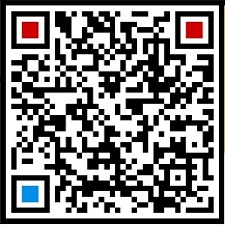留学文书范文|电子工程|个人陈述|PS|Electrical Engineering|15
嘉东/2020-01-21/ 分类:个人陈述PS/阅读:
Applied Program: Electrical Engineering For many people, the process of learning is a struggle a necessary chore that requires hours, days and months of forcing oneself to study that leads to the desired end result, which is the acquisitio ...
Applied Program: Electrical Engineering
For many people, the process of learning is a struggle – a necessary chore that requires hours, days and months of forcing oneself to study that leads to the desired end result, which is the acquisition of knowledge. For me, however, the learning process is a continuous, enjoyable and never-ending pursuit of self-improvement. In other words, the satisfaction for me is in the journey rather than in reaching a certain destination, which is why I have decided to devote my life to research in Electrical Engineering, particularly in the area of Optoelectronics. The PhD itself is not my ultimate goal; rather it is a crucial springboard for my career as a professional scientist and researcher in Electronics.
My interest in optics and photonics was piqued by Professor XX in my optical research class, who often posed intriguing and amusing questions to us, such as “How can we realize optical communications between two terminals in space?” and “The Last Mile Problem”. Questions like these really attracted my attention and focus. This great professor’s enthusiasm for his subject, as well as his fascinating questions, stimulated my great interest in optics and photonics.
Once I knew that I was interested in this area, I chose the optional courses of optoelectronics and optics, which was an entirely new area of study. During this course I was able to work with many optic and photonic devices as well as integrated chips. I also learned about the basic theories and production processes of fiber optics and lasers. Because I was so interested in the subject area, it was easy to fully apply myself and put all my efforts into the two courses, and I ranked in the top three percent on the final examinations. My success and interest in these courses reinforced my decision to study optical communications.
With my strong academic background, I was accepted as a volunteer in the Key Laboratory of XX with the Ministry of XX, which is a very important department of the Chinese government. Initially my job was to read a huge number of papers and essays written in English, most of which described work done by SILEX of Europe as well as American universities. For most people it was a difficult task, but I saw it as an opportunity to learn up-to-date technology and practice English used in my area of specialization. On account of my English proficiency, I gained within one month a thorough understanding of the trends of future research that I would like to be involved in and through which I could continue to improve my specialized English. Apart from being impressed by the unbelievable speed and capacity of optical communications, I spotted some of the problems bothering engineers and scientists, such as the atmospheric turbulence, design of stable control systems, utilization of new types of filters, etc.
In addition to reading the latest research papers, I was also very active in experiments that involved the practical application of the theories that I had read about. I watched carefully and asked questions about things that I didn’t understand, always keeping a notebook with me to write down both the questions and the answers. I mastered the use of equipment such as the 4QD, DAQ, PZT and the CCD. I have also learned to set the apparatus on the experimental panel, keep track of the data stream and make adjustments in the apparatus whenever necessary. My advisor was my optics professor XX, who was so impressed with my work that he enrolled me as a formal member of his laboratory, which was an incredible honor that allowed me to work on projects that I had dreamed of every since my first optics class.
I was placed in charge of the design and maintenance of the control system, which was the key part of the experiment. I made extensive use of Visual C++ and LABVIEW software. I also wrote programs in MATLAB to calculate and analyze the data collected in the experiments. MATLAB was very convenient to use, especially for the matrix calculations, which were one of the most important parts of my work. After months of hard work, we had established a control system and platform with great stability and performance. Throughout this project, I acquired not only the ability to think and work independently, but I also learned to work as a member of a team. Our weekly meetings at which we shared our work and difficulties during the week provided an important forum for advice and feedback to each other, which proved to me the importance of teamwork in enabling our project to progress smoothly. My research experiences also include performance of specific responsibilities—maintaining the robust and stability of the control system and adjusting parameters of the models to proper extent. Moreover, I was in charge of the processing of data stream involving calculation, importing and exporting of packages of data, digital-to-analogy and analogy-to-digital conversion units. I have also taken up the responsibility of updating the programs, rewriting the Visual C++ program in LABVIEW language. Throughout the project I demonstrated sound cooperation and teamwork. I was always willing to provide information and assistance to other group members.
One of the keys to my successful performance in the laboratory was my strong academic background. XX University is internationally recognized as the top university in China and I received strict and thorough academic and experimental training there. The courses were difficult and the teachers were very strict, which was very beneficial to me because I was required to put my heart and soul into achieving success in the classroom. As a result, I performed extremely well in most courses and earned high scores, I was always among the top students in my class. For example, I was in the top five percent of the class in Advanced Calculus (Advanced Mathematics in my transcript), Linear Algebra (dealing with matrix theories), Numerical Methods (where I mastered MATLAB) and the Theory of Probability (very useful in the calculation of error rate in communication). Through my laboratory work in courses such as Electronic Circuits Laboratory, Digital Circuits Laboratory, and Microcomputer Principles and Application of I/O Interface, I mastered fundamental experimentation techniques such as the manipulation of the oscilligraph and the attribution of integrated chips.
Having laid a strong foundation with my previous academic and research work, I began searching for the best university to deepen my knowledge and understanding of Electronics. I found that the University of XX offers everything that I am looking for to continue my lifelong pursuit of excellence in Electrical Engineering and Optoelectronics. Your university places great emphasis on its EE department, as shown by the continuous and large increases in funding and research projects as well as its pursuit of the very best graduate students. XX has an excellent faculty with a wide range of academic courses offered, particularly in the areas in which I am interested. Your advanced facilities and methodologies in the laboratories, along with the fresh perspectives and ideas created by drawing together the best of international postgraduate students, have made me realize that your program is the best choice for me to further my education as a PhD candidate.
I find myself readily identifying with your mission of achieving ‘Excellence in Education through Cutting Edge Research’ and your values of “Innovation and Creativity”. Your strong faculty group, which includes 19 IEEE fellows and outstanding honors of 11 NSF CAREER Awards, reinforces my interest in your Department. I look forward to the challenge of participating in your program and continuing my ambition of dedicating my life to the study and development of Electronics. Upon the completion of my advanced studies, my plan is to return to my home country and seek a position in an institution of higher learning, where I can continue my research as well as pass on my knowledge to the next generation of electrical engineers.
My interest in optics and photonics was piqued by Professor XX in my optical research class, who often posed intriguing and amusing questions to us, such as “How can we realize optical communications between two terminals in space?” and “The Last Mile Problem”. Questions like these really attracted my attention and focus. This great professor’s enthusiasm for his subject, as well as his fascinating questions, stimulated my great interest in optics and photonics.
Once I knew that I was interested in this area, I chose the optional courses of optoelectronics and optics, which was an entirely new area of study. During this course I was able to work with many optic and photonic devices as well as integrated chips. I also learned about the basic theories and production processes of fiber optics and lasers. Because I was so interested in the subject area, it was easy to fully apply myself and put all my efforts into the two courses, and I ranked in the top three percent on the final examinations. My success and interest in these courses reinforced my decision to study optical communications.
With my strong academic background, I was accepted as a volunteer in the Key Laboratory of XX with the Ministry of XX, which is a very important department of the Chinese government. Initially my job was to read a huge number of papers and essays written in English, most of which described work done by SILEX of Europe as well as American universities. For most people it was a difficult task, but I saw it as an opportunity to learn up-to-date technology and practice English used in my area of specialization. On account of my English proficiency, I gained within one month a thorough understanding of the trends of future research that I would like to be involved in and through which I could continue to improve my specialized English. Apart from being impressed by the unbelievable speed and capacity of optical communications, I spotted some of the problems bothering engineers and scientists, such as the atmospheric turbulence, design of stable control systems, utilization of new types of filters, etc.
In addition to reading the latest research papers, I was also very active in experiments that involved the practical application of the theories that I had read about. I watched carefully and asked questions about things that I didn’t understand, always keeping a notebook with me to write down both the questions and the answers. I mastered the use of equipment such as the 4QD, DAQ, PZT and the CCD. I have also learned to set the apparatus on the experimental panel, keep track of the data stream and make adjustments in the apparatus whenever necessary. My advisor was my optics professor XX, who was so impressed with my work that he enrolled me as a formal member of his laboratory, which was an incredible honor that allowed me to work on projects that I had dreamed of every since my first optics class.
I was placed in charge of the design and maintenance of the control system, which was the key part of the experiment. I made extensive use of Visual C++ and LABVIEW software. I also wrote programs in MATLAB to calculate and analyze the data collected in the experiments. MATLAB was very convenient to use, especially for the matrix calculations, which were one of the most important parts of my work. After months of hard work, we had established a control system and platform with great stability and performance. Throughout this project, I acquired not only the ability to think and work independently, but I also learned to work as a member of a team. Our weekly meetings at which we shared our work and difficulties during the week provided an important forum for advice and feedback to each other, which proved to me the importance of teamwork in enabling our project to progress smoothly. My research experiences also include performance of specific responsibilities—maintaining the robust and stability of the control system and adjusting parameters of the models to proper extent. Moreover, I was in charge of the processing of data stream involving calculation, importing and exporting of packages of data, digital-to-analogy and analogy-to-digital conversion units. I have also taken up the responsibility of updating the programs, rewriting the Visual C++ program in LABVIEW language. Throughout the project I demonstrated sound cooperation and teamwork. I was always willing to provide information and assistance to other group members.
One of the keys to my successful performance in the laboratory was my strong academic background. XX University is internationally recognized as the top university in China and I received strict and thorough academic and experimental training there. The courses were difficult and the teachers were very strict, which was very beneficial to me because I was required to put my heart and soul into achieving success in the classroom. As a result, I performed extremely well in most courses and earned high scores, I was always among the top students in my class. For example, I was in the top five percent of the class in Advanced Calculus (Advanced Mathematics in my transcript), Linear Algebra (dealing with matrix theories), Numerical Methods (where I mastered MATLAB) and the Theory of Probability (very useful in the calculation of error rate in communication). Through my laboratory work in courses such as Electronic Circuits Laboratory, Digital Circuits Laboratory, and Microcomputer Principles and Application of I/O Interface, I mastered fundamental experimentation techniques such as the manipulation of the oscilligraph and the attribution of integrated chips.
Having laid a strong foundation with my previous academic and research work, I began searching for the best university to deepen my knowledge and understanding of Electronics. I found that the University of XX offers everything that I am looking for to continue my lifelong pursuit of excellence in Electrical Engineering and Optoelectronics. Your university places great emphasis on its EE department, as shown by the continuous and large increases in funding and research projects as well as its pursuit of the very best graduate students. XX has an excellent faculty with a wide range of academic courses offered, particularly in the areas in which I am interested. Your advanced facilities and methodologies in the laboratories, along with the fresh perspectives and ideas created by drawing together the best of international postgraduate students, have made me realize that your program is the best choice for me to further my education as a PhD candidate.
I find myself readily identifying with your mission of achieving ‘Excellence in Education through Cutting Edge Research’ and your values of “Innovation and Creativity”. Your strong faculty group, which includes 19 IEEE fellows and outstanding honors of 11 NSF CAREER Awards, reinforces my interest in your Department. I look forward to the challenge of participating in your program and continuing my ambition of dedicating my life to the study and development of Electronics. Upon the completion of my advanced studies, my plan is to return to my home country and seek a position in an institution of higher learning, where I can continue my research as well as pass on my knowledge to the next generation of electrical engineers.
此文书内容来源于网络,若侵犯权益,请及时联系我们!
若需要更多的文书范文也请联系我们!
-
VIP咨询

免费申请/获取文书范文加上方微信
-
微信公众号

更多免费申请信息请关注上方公众号
版权声明 本文仅代表作者观点,不代表本站立场。
本文系作者授权本站发表,未经许可,不得转载。
本文系作者授权本站发表,未经许可,不得转载。
扩展阅读:





